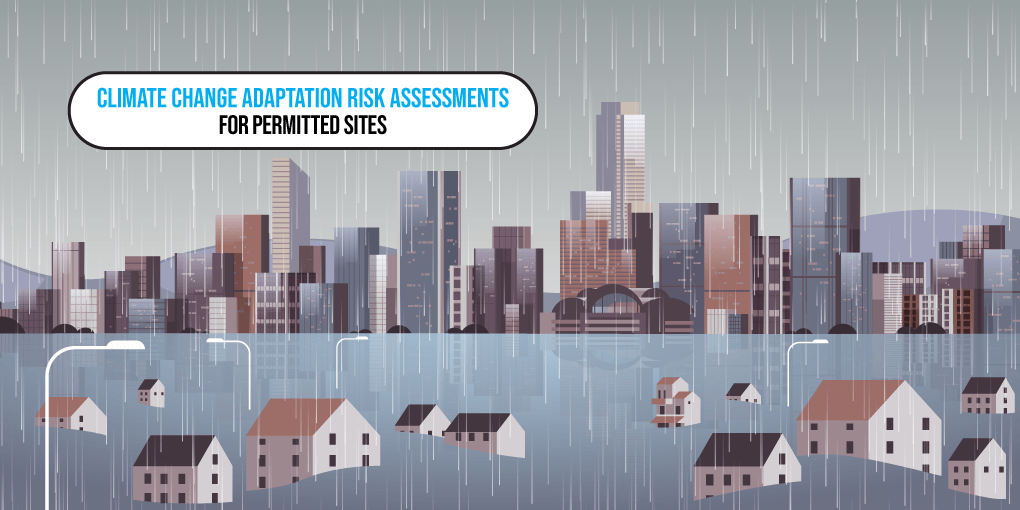Climate Change Risk Assessments & Adaptation Plan
The Environment Agency (EA) has issued guidance which states that if your Environmental Permit was issued before April 2023, you need to complete a Climate Change Adaptation Risk Assessment by 1st April 2024.
It is likely that your Climate Change Risk Assessment will be inspected by the EA as part of overarching checks on your management system.
ECL can assist in the preparation of the risk assessment and advise how it can be incorporated into your management system.
The climate change risk assessment and adaptation plan must be site specific, and you will need to consider:
- risks to your business from climate change;
- risks your business creates due to climate change; and
- how to embed controls.

Why Is A Climate Change Risk Assessment Important?
Climate projections show that in the future, sites are likely to face an increased risk of climate change impacts including extreme rainfall resulting in more frequent and severe floods, heat waves, droughts, rises in sea levels and storms.
It’s important to plan appropriately and implement changes, if and when required to try and reduce future impacts. Planning will help you to:
- Remain in compliance with your Environmental Permit, regulations and other obligations
- Minimise your environmental impact during an extreme weather event
- Minimise an event’s impact on your operations
- Improve business continuity by avoiding unplanned shutdowns and other business interruptions
Your climate change adaptation risk assessment must identify the potential risks and detail mitigation to ensure these are addressed including to minimise your impact on the environment during an extreme weather event.
It is likely that the Environment Agency when as part of their checks, inspect your management system will also check your Climate Change Risk Assessment and Adaptation Plan. The EA may even audit them after a significant pollution event if related to severe weather.
What Is Required?
Following the EA Guidance explains that the process should follow the below steps:
- Prepare: Review what processes are already in place.
- Assess: Consider how vulnerable the site is to current and future climate change.
- Complete Risk Assessment: Consider the current and future activities and threats, including all known or reasonably foreseeable site-specific climate impacts.
- Control: Gather information on options available to address the risks. Assess if they are reasonably practical to ensure compliance with the Environmental Permit.
- Write: Your Climate Change Adaptation Plan.
- Monitor
- Record
- Review
Consideration is required to assess how vulnerable your site is to current and future changes in climate.
You should assess for a 4°C rise by 2100 and plan for a 2°C rise by 2050.
You should also assess for potential impacts both relevant to site and your business activity.
If your operation is high risk, you will need to complete a more in-depth risk assessment using best available climate change information, finding control or management measures for the significant risks, writing your climate change adaptation plan in line with a suitable standard such as ISO 14090:2019, embedding it into your management system and then considering the timescales of likely impacts.
Your Climate Change Risk Assessment Experts
ECL is a multi-disciplinary environmental consultancy that can guide you through each step of your climate change planning, risk assessment, and adaptations. Including:
- Environmental Management Systems
- Environmental Compliance Auditing and Monitoring
- Environmental Permit Applications
- Undertaking Climate Change Risk Assessments
- Developing and the implementation of Climate Adaptation Plans
ECL provide guidance and advise on planning for the impacts of climate change and the effect they could have on your business. With robust, data-driven support to ensure your risk assessment is appropriate and comprehensive.
If you require technical expertise in the preparation of a climate change adaptation risk assessment, ECL can provide this support utilising our developed template whilst also considering your site-specific setting and permitted activities.
If you would like more information on how ECL can assist, please get in contact via our Enquiry Form on our website or call us on 01443 801215.

